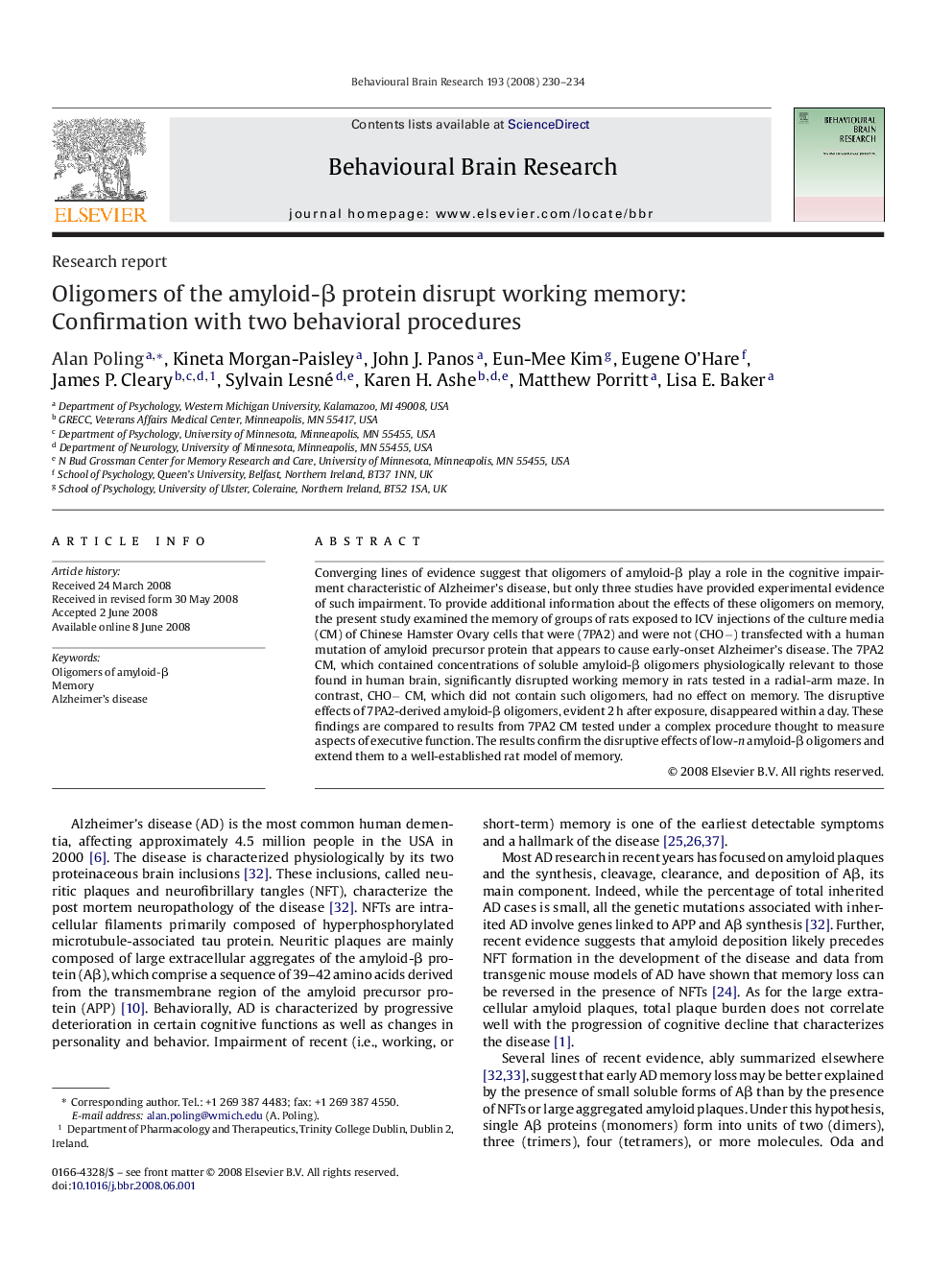| Article ID | Journal | Published Year | Pages | File Type |
|---|---|---|---|---|
| 4315091 | Behavioural Brain Research | 2008 | 5 Pages |
Converging lines of evidence suggest that oligomers of amyloid-β play a role in the cognitive impairment characteristic of Alzheimer's disease, but only three studies have provided experimental evidence of such impairment. To provide additional information about the effects of these oligomers on memory, the present study examined the memory of groups of rats exposed to ICV injections of the culture media (CM) of Chinese Hamster Ovary cells that were (7PA2) and were not (CHO−) transfected with a human mutation of amyloid precursor protein that appears to cause early-onset Alzheimer's disease. The 7PA2 CM, which contained concentrations of soluble amyloid-β oligomers physiologically relevant to those found in human brain, significantly disrupted working memory in rats tested in a radial-arm maze. In contrast, CHO− CM, which did not contain such oligomers, had no effect on memory. The disruptive effects of 7PA2-derived amyloid-β oligomers, evident 2 h after exposure, disappeared within a day. These findings are compared to results from 7PA2 CM tested under a complex procedure thought to measure aspects of executive function. The results confirm the disruptive effects of low-n amyloid-β oligomers and extend them to a well-established rat model of memory.
